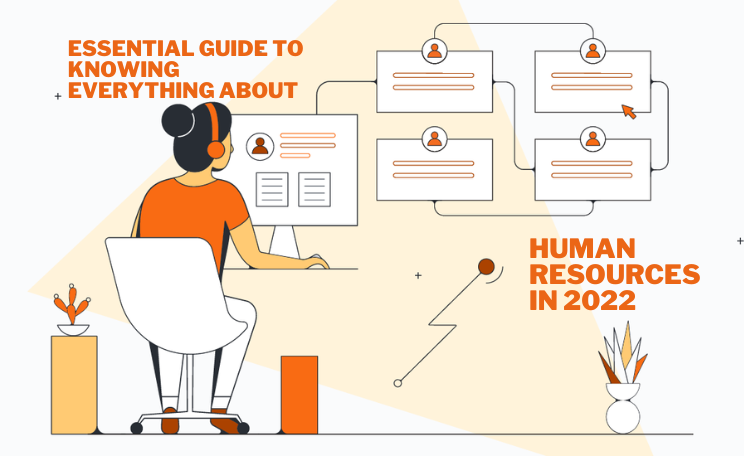A good human resources department is an important part of any company. They handle all employee relations so you can focus on your part of the business.
Before we explain why your company needs an influential HR department and how to create one, let’s talk more about what HR really means.
HR is the person or group of people in a company who manages everything related to its employees. This includes (but is not limited to) hiring, managing budgets, recruiting, managing benefits, ensuring employee satisfaction, implementing company culture, and training new employees.
From this definition alone, you can see how difficult it is to run a successful business without the support of an HR department. That’s why even small and medium-sized businesses have an HR department whose employees oversee all management, engagement, and development issues between the company and its employees. It exists to help the company and its employees continue to work well together.
The tasks and responsibilities of human resources employees affect a significant portion of your business on a daily basis. What does this mean for you? To better understand the impact HR has on your company, let’s look at some of the most common responsibilities of these employees.
HR Responsibilities
1. Building relationships with employees.
2. Creating employment structures.
3. Managing employee satisfaction.
4. Managing employee benefits.
5. Manage compensation.
6. Managing the company’s business plan.
7. Manage the training of new employees.
8. Selecting applicants for jobs.
9. Creating company cultural standards
10. Maintaining a healthy work environment.
11. Handling of the necessary documentation.
Roles in Human Resources
Having described the general requirements and characteristics to look for in a human resources candidate, let’s move on to looking at the actual role required in human resources.
First, let’s start with the structure of the HR department. Depending on the size of the company, your own HR department may or may not require all of these roles and levels. Another important point is that the names of these roles and the levels at which they are located also vary from company to company, but this chart will give you a general idea of the HR department structure.
Entry-Level Roles in HR
Entry-level roles in HR are appropriate for students, recent graduates, or those just starting out in the sector. A variety of roles are offered, including assistant, intern, specialist, generalist, and recruiter.
Human Resources Assistants and Interns
Assistants and interns are usually responsible for administrative tasks assigned to them by managers, such as organizing paperwork and completing the employer section of new hire information so that other members of the department can remain productive and focus on more complex tasks.
HR Specialists
HR professionals are professionals who specialize in a particular department or area in HR. These specializations include human resource development, human resource management, and organizational development. Their goal is to become an expert in their chosen specialization.
HR generalists
HR generalists have knowledge covering several different areas of the HR sector and its needs. People in this position will deal with common tasks that come to mind in relation to HR, such as compensation, employee relations, and the work environment.
Recruiter
The recruiter’s sole job is to attract talent to the company. They find new talent to fill gaps in the staffing plan so the company can grow and stay productive.
Know more: Read about Recruiter Interview question and answer
Also, read more about: What is Recruiter?
HR Consultants
HR consultants usually oversee all HR administrative tasks and ensure compliance with all company, state, and federal policies and laws. They may be experts in specific HR policies. Depending on your budget and resources, you may want to hire an outside professional to fill this role.
Learn More About HR Consultant
Back to you
Having a great HR team is vital to the success of your business. HR manages employee relations, hiring, training, career development, benefits, and company culture. Without HR, your employees can’t do their jobs. Start by considering the number and type of HR employees you need, and start building a department that will allow your company to continue to grow.
